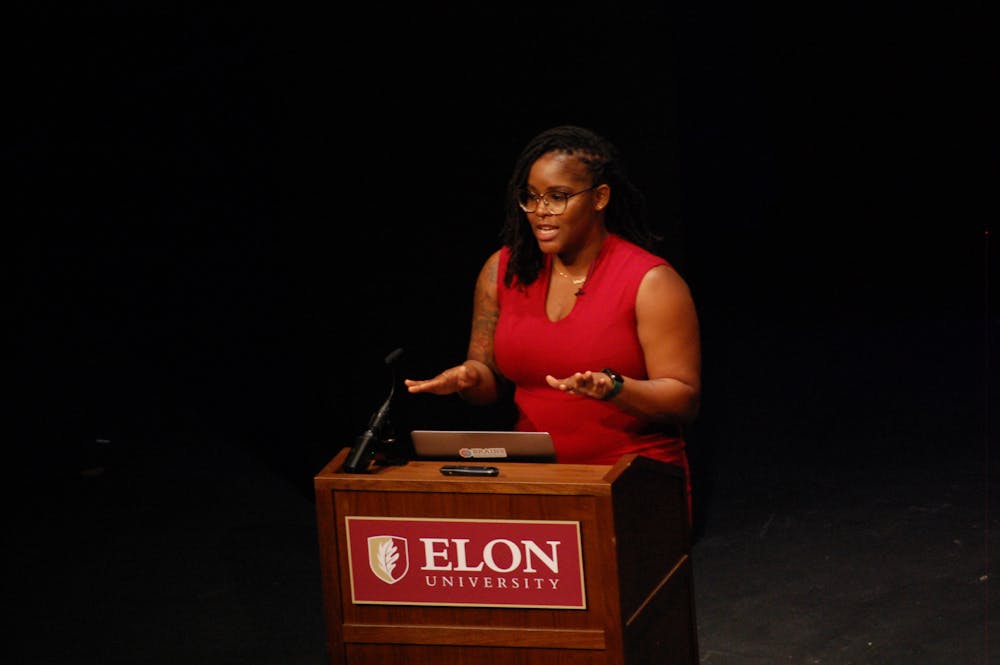Indira Turney, a postdoctoral fellow at Columbia University Medical Center, spoke to the Elon community Monday on factors that affect an aging brain. Turney works with the Taub Institute for Research on Alzheimer’s Disease and the Aging Brain in the Department of Neurology at the Columbia University Medical Center.
According to Turney’s research, Black adults show accelerated patterns of brain aging beginning in midlife. Turney credited varied aging patterns not just to biological differences but also to living environments.
“Younger people are aging just about the same across race, but as they get older, there's other factors and problems that play a role, and then you start seeing that disparity, however, that’s just one measure,” Turney said. “That's why it's really important to look at different kinds of measures because they give us different information.”
One example Turney used was income and how perceptions of income vary by race and age.
“Your current income was more predictive of your brain health than your childhood income from Black individuals,” Turney said. “But your parents' income or your mixture of your parents' income, education, occupation, or the environment you're raised in is more important for your brain health if you’re identifying as white.”
Turney advised older members of the crowd to exercise their bodies and brain to combat brain aging.
“The worst thing that individuals can do is retire and do nothing,” Turney said. “Even things like knitting or picking up a craft is stimulating enough and can help in some cases.”
Twin Lakes Retirement Community resident Homer Ashby said he plans on being more active following Turney’s advice.
“I am an older adult, so I wanted to get some ideas and indications of what it is that I can do as an older adult to stem the tide or avoid dementia,” Ashby said.
As for Turney’s future, she plans to continue and expand her research.
“What I'm really focusing on now is trying to get a more precise measure of how your body is aging and not focusing so much on your chronological age,” Turney said. “So, my future work will kind of focus on how these life experiences determine how genes are expressed within a body.”


